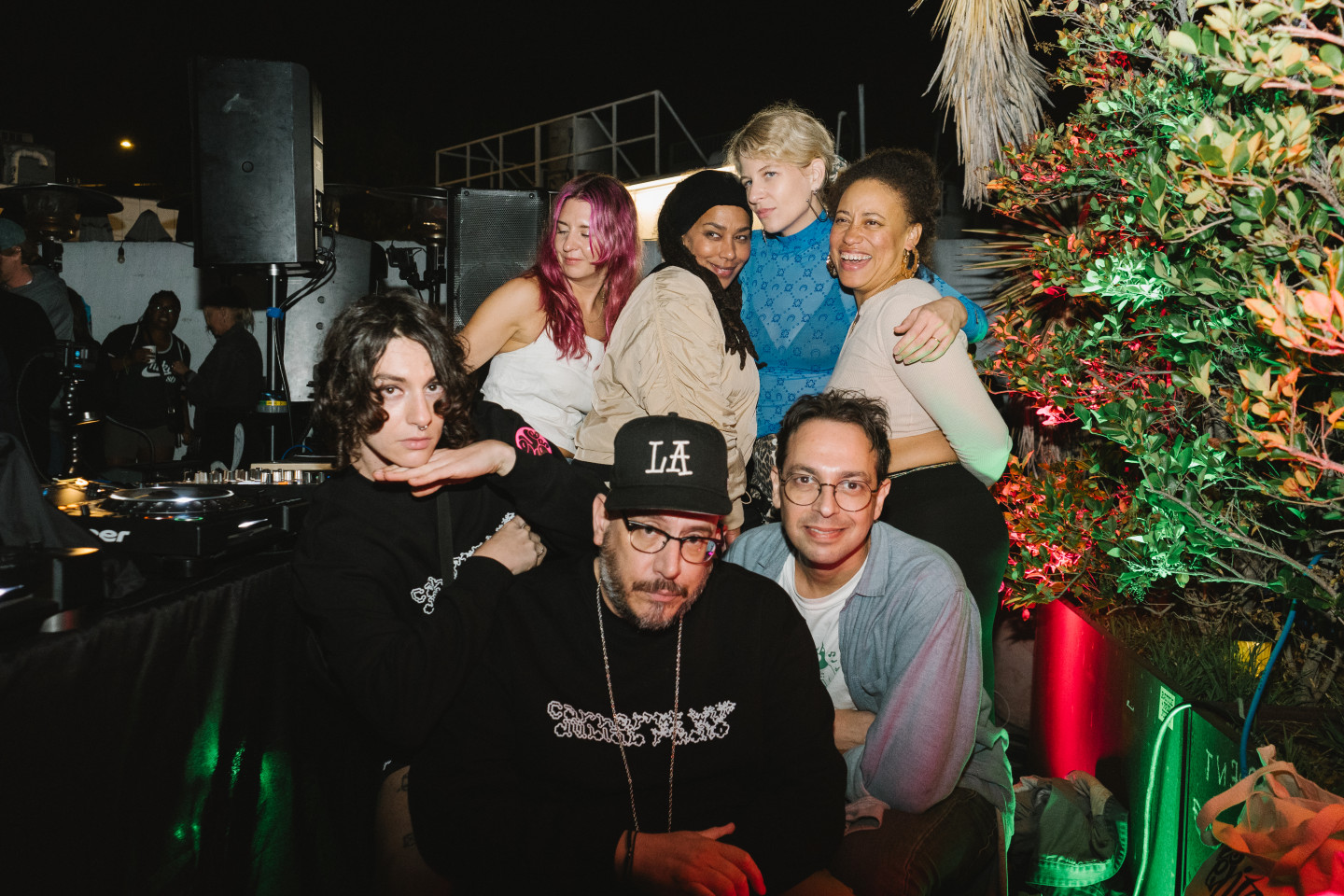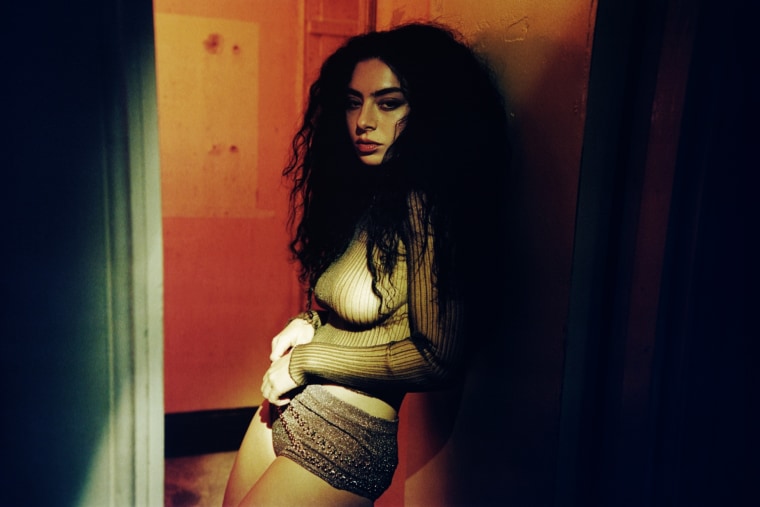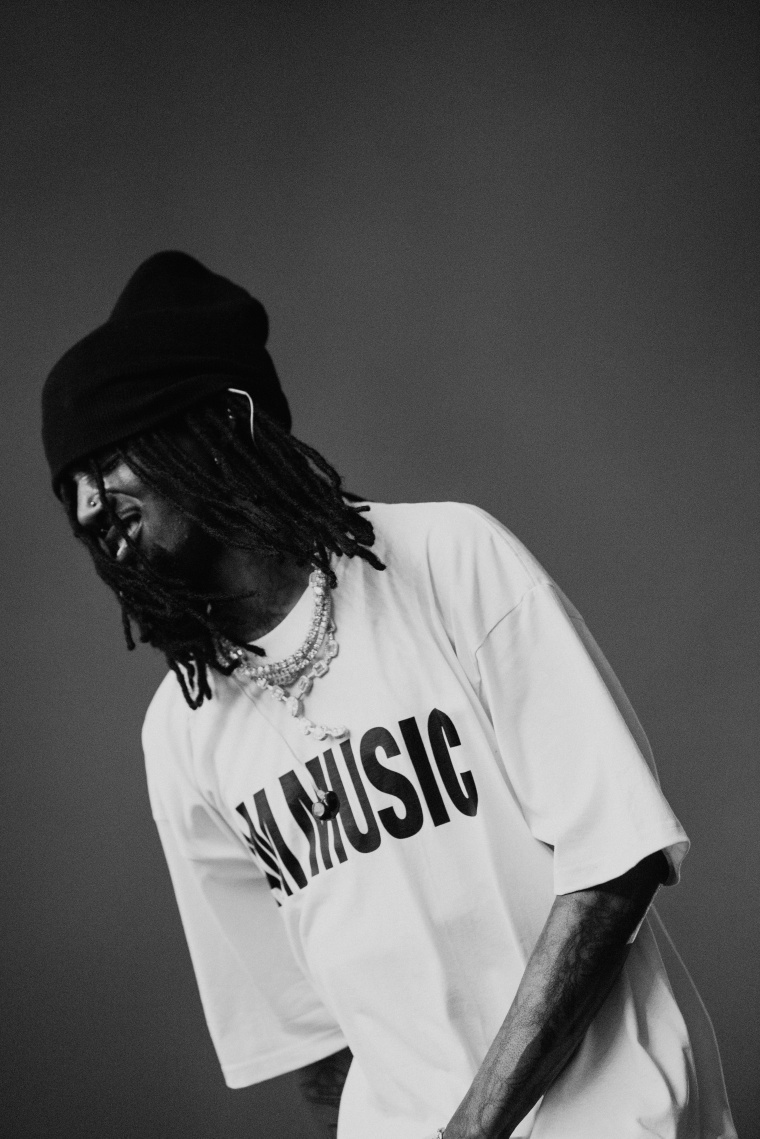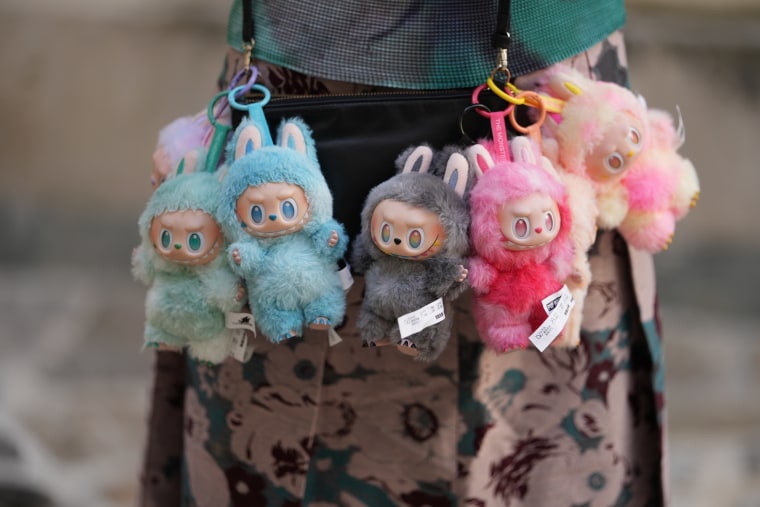Mary Nagakawa
The big, fire-engine red lever mounted on the inside of dublab’s Los Angeles headquarters once held the ability to cut off the power for half of L.A. If the current was still live, the station’s executive director Ale Cohen says, he’d be able to shut down the second-largest city in the United States during rush hour. Though he’d never make good on the threat now, as the lever controls the operations of the radio station. Hitting the switch would disturb the current broadcast, Cohen says with a lighthearted laugh. Plus, he’d get in trouble with the nonprofit’s actual owners: the collective of devoted listeners who, quite literally, keep the lights on.
Over two decades before concepts like community engagement and cultural diversity even entered mainstream discourse, USC grads and KXSC DJs, Mark “Frosty” McNeill and Jon Buck, sought to carve out space for a community of listeners, DJs, and artists existing on what the former refers to as “the left end of the dial.” By the time they founded dublab in 1999, radio had been taken over by an oligarchy that used The 1996 Telecommunications Act to wipe out the small community stations that helped connect activist groups, independent artists, and L.A.’s communities of color spread out across the city’s infamous sprawl. A strong believer in the power of collective action, McNeill quit his job a month after graduation to create dublab, a “community micro-power broadcasting” station.
Equipped with a clunky computer and enough ethernet cable to reach a bar down the street, the team received help from San Francisco-based broadcasters beta lounge to join several pirate radio outlets circumventing government censorship with a connective technological innovation meant to democratize the world (a.k.a. the internet). Now, Cohen was able to access L.A.’s underground as a fan in Argentina.
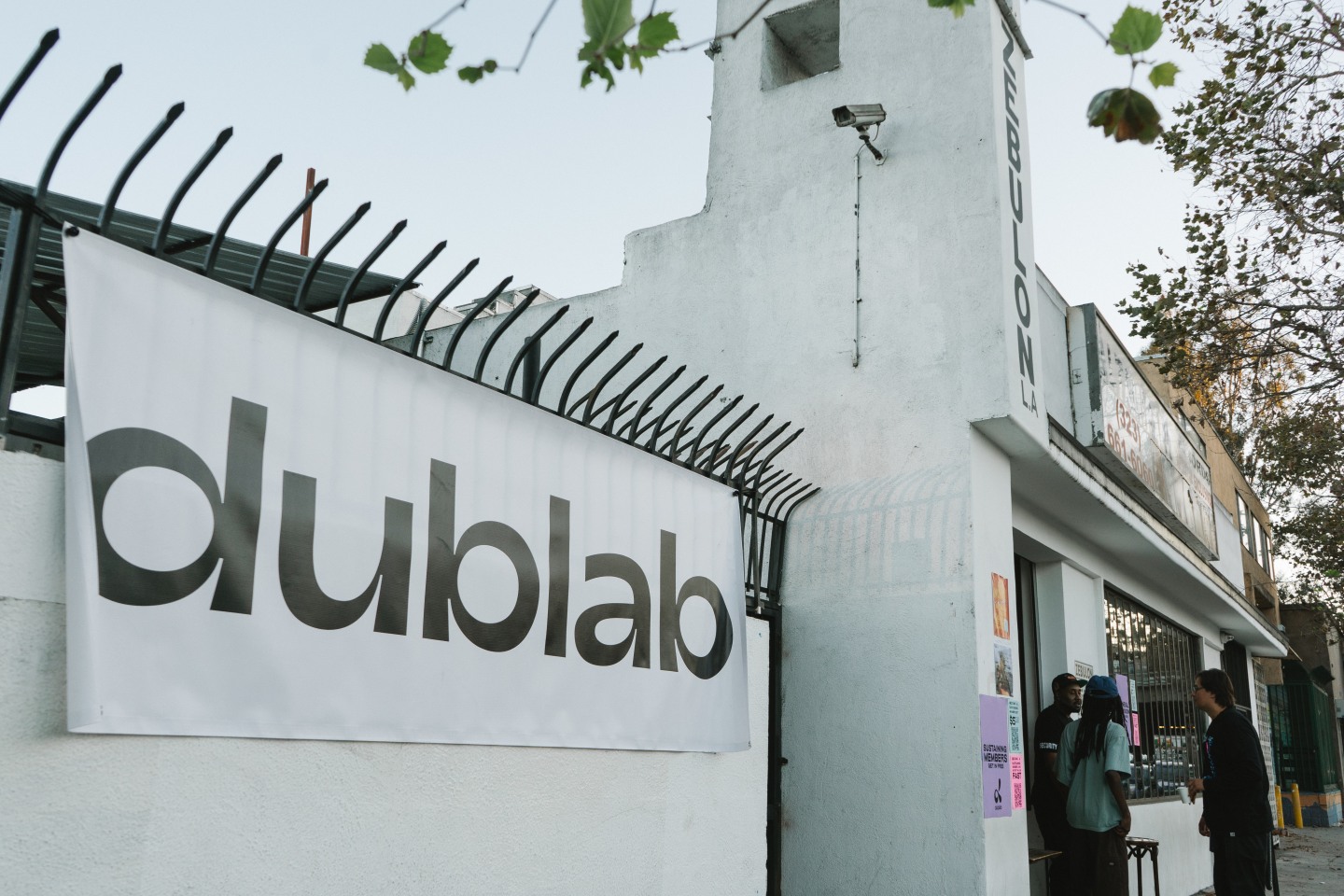
Mary Nagakawa
Fast forward to 2024, and dublab has now been live on air for 25 years, and other longtime listeners in Germany, Spain, and Japan have since formed their own satellite studios under the dublab name. dublab’s Japan director Yuki Tamai says he first stumbled upon dublab in 2000. Drawn to the intimacy of pirate radio and that feeling of having a one-on-one connection with the DJ, Tamai remembers the broadcasts giving him “a sense of the growing free and timeless music culture that included all genres.”
Per Cohen, the station was “never hard and fast about genres” from the get-go, explaining how you could tune into dublab to hear Brainfeeder’s first broadcast or cumbia picks from the station’s first engineer, who also happened to be a custodian at USC. McNeill recalls weekly selects from Jurassic 5’s DJ Nu-Mark; Carlos Niño spinning “amazing funk and soul while his wife breastfed [their newborn son]” next to the decks; and surprise sets from out-of-town legends like Wu-Tang Clan, Kool Keith, and Grooverider. And if you stuck around, you could catch Dntel and The Postal Service’s Jimmy Tamborello’s show, “Dying Sounds,” where he plays the kind of music he thinks “you’d want to hear while you’re dying.” “It’s like getting in a car crash while your stereo is playing something you want to bring you to heaven,” McNeill says of just how adventurous dublab’s programming can still get.
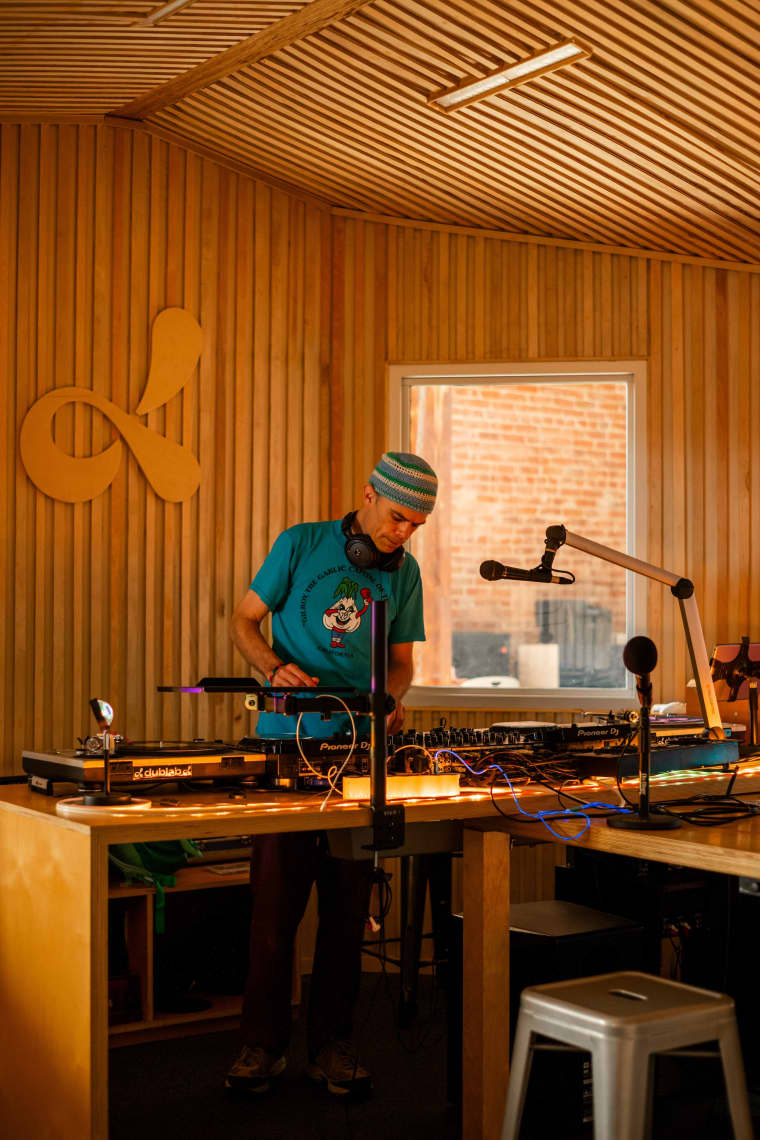
Over the years, dublab’s L.A. headquarters has hosted musicians like Flying Lotus, Wu-Tang Clan, Kool Keith, and more.
Kate Berry
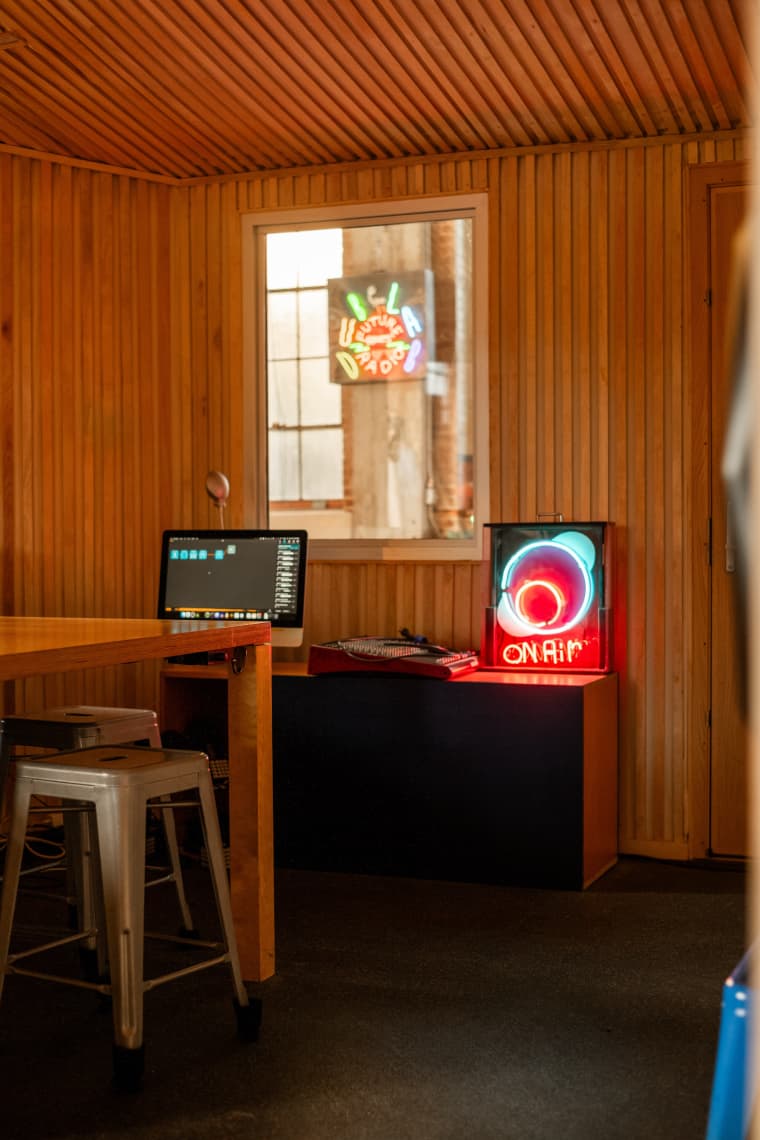
Kate Berry
There is always something new to listen to when you tune into the L.A. musical “institution on par with the Walt Disney Concert Hall or the Hollywood Bowl,” says hip-hop writer and “POW Radio” host, Jeff Weiss. The industry has helped put their stamp on that vision with modular synth pioneer Suzanne Ciani designing its logo; Flying Lotus, Julia Holter, and two Red Hot Chili Peppers hosting sets with the support of major donors like famed pop artist Ed Ruscha and Pulitzer Prize-winning Maus cartoonist Art Spiegelman; and, most recently, L.A.X. commissioning the station to create immersive, audiovisual installations for its sprawling Tom Bradley International Terminal. Over time, the long-standing community radio institution serving Southern California has been able to cement its reputation as a well-rounded representative of L.A.’s cultural, racial, and ethnic diversity.
Lately, dublab’s been focused on expanding their reach into the city’s underground rave and club scene, an effort that Cohen and McNeill says is due to dublab general manager Rachel Day.
“She really thinks about how we can include even more diverse voices on the airwaves and give space [to every part in L.A.],” McNeill says. According to Day, a dublab DJ is someone who “clearly has a perspective to share” and wants to use the opportunity to “give a window into their own respective communities.”
“[dublab is] an institution on par with the Walt Disney Concert Hall or the Hollywood Bowl.”
“The coolest iteration we’ve been really seeing more of is that dublab itself has become a hub for all these different people, and then each person brings their own hub and it networks out from there,” Day says. Her role is trying to “have a cross-section of people, genres, and perspectives” that really represent the city.
The fact that dublab functions more like “a community center, musical clubhouse, and arts organization” that focuses on the tastes of “the larger community” is unusual, says music journalist Vivian Host, an L.A. native and founder of dublab’s recurring show “Chaos Clan.” Despite serving as the blueprint for other indie online radio outlets like NTS, Boiler Room, and the now-defunct Red Light Radio, dublab isn’t “focused on DJs doing mixes on air,” but its diverse programming that pushes the boundaries of whatever murky classifications a show’s been given, Host adds.
One example is “VSSL Radio,” named after a warehouse party run by Restless Nites founder Remy Marc. For the past 11 years, Marc’s show — which he now co-hosts with VSSL resident DJ Blackdog (a.k.a. Josh Beck) — has leaned more toward “heavier” genres like industrial, dark techno, and acid. Despite joking that the show’s tagline is “techno, not techno,” Marc asserts that VSSL was one of a handful of techno club-oriented parties to first partner with dublab, even if he and Beck now “broaden the scope” beyond dark techno.
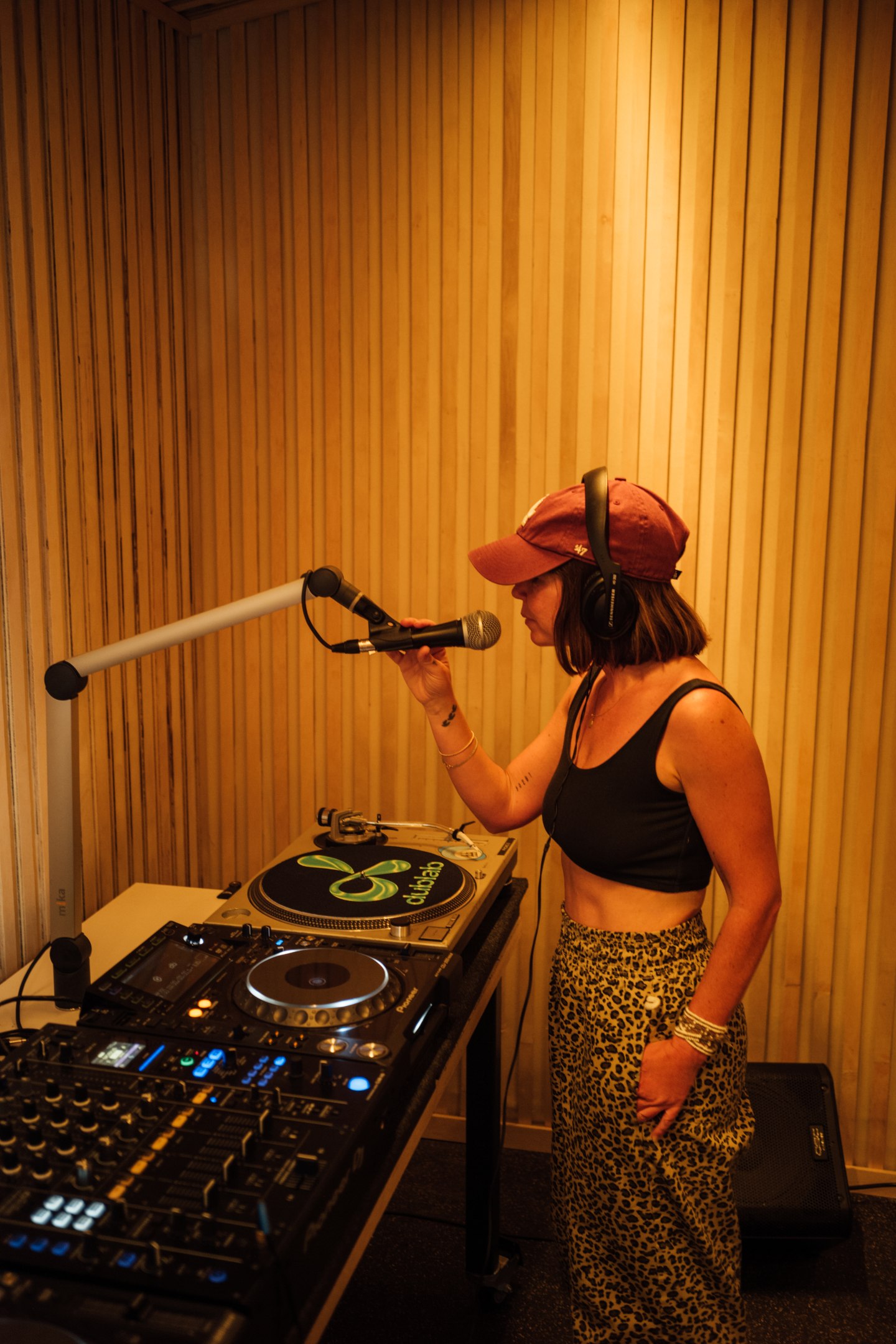
Kate Berry
“Josh definitely swings into some weird ‘60s stuff and psych rock. Like he’s played Prince on the show, just diving into some fun stuff,” Marc says. “Whereas, I mostly keep it electronic or play some post punk-stuff, though I don’t really go further back than the ‘80s. Strange sounds that kind of lend into the atmosphere of dark techno. But, again, it’s not techno.”
Rather than restrict themselves to labels and overgeneralization, Day seemingly speaks for the entire dublab community when she talks about the importance of “keeping that original grassroots spirit” of being as democratic as possible. Their adherence to this core value, even as they adapt to a market that’s “evolved into a very different place than we were at the beginning” with the advent of algorithms, AI DJs and more, is what Tamborello thinks has contributed to dublab’s longevity.
“A human DJ is always going to come from some weird direction with their music tastes,” he says. “And I think there’s more fun in that.“

